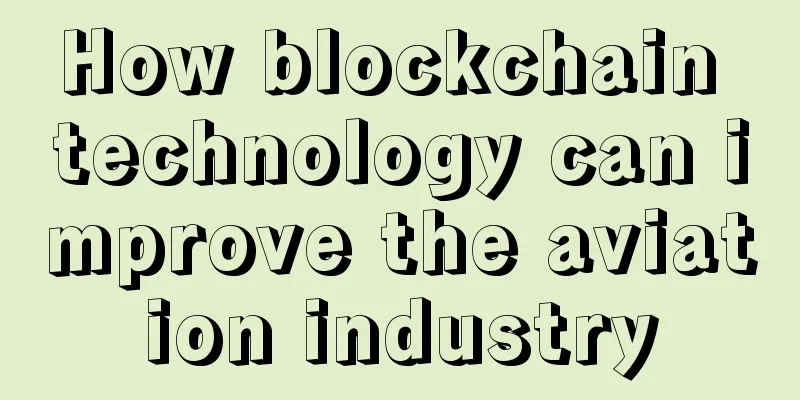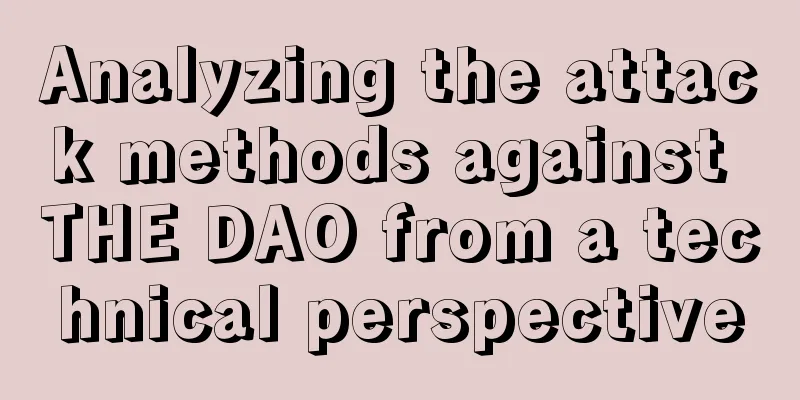How blockchain technology can improve the aviation industry

|
Rage Comment : The United States, Russia and other countries have launched blockchain application plans for the aviation industry, but only some peripheral applications. Recently, consulting firm Accenture conducted a detailed analysis of the aviation industry and believed that blockchain technology can run through the entire process of the industry. Eliminate some inefficient institutions and processes, increase the transparency and security of airlines, and achieve more convenient aviation services. Of course, before the same aviation industry data system, it is necessary to fully consider which participants the system has. Translation: Annie_Xu Consulting firm Accenture analyzed that the aviation industry is a data-intensive industry with complex processes and requirements, and can gain many benefits from blockchain technology. Blockchain uses encryption technology and distributed communication systems to provide a shared ledger and decentralize the account verification process. The difference between blockchain technology and traditional technology is that they are persistent, consistent, shared, and interactive. Multi-party participation and multi-site networks Many transportation industries, including aviation, rely on multiple departments and sites. From booking to arrival, the participants involved include online travel service platforms, government agencies, airlines, card service providers, airports, car rental companies, hotels, etc. Each participant collects, stores and shares operational information. A complex data verification process is completed behind the scenes at each stop on each journey. Airlines alone have multiple isolated data systems, ranging from passenger services to crew management. Such complex multi-system involvement makes data exchange complex and changeable. For airlines, once a link goes wrong, operational correctness, revenue sources, and safety will be threatened. Blockchain technology can improve reconciliation processes and data sharing Transformative Possibility For the aviation industry, the transformative nature of blockchain technology may extend to the following processes: Ticketing: E-tickets are database entries, information that can be retrieved from the database. Blockchain can tokenize these assets. Through smart contracts, airlines can set business logic and conditions for ticket sales and usage methods. Real-time ticket sales can be achieved anytime, anywhere and on different platforms. Loyalty: According to traditional airline points programs, passengers usually have to wait for the points to be calculated before they can use them; they are also restricted by the location of use. But by tokenizing points on the blockchain, passengers can redeem points immediately and get real benefits. They can also increase the use of points through user communities. Once more service providers regard points as "currency", passengers can choose faster and more convenient programs according to their personal preferences. Security and Identity: Data privacy of passenger records, aircraft manifests, crew information, etc. is very important. If the data is not properly protected, security will be compromised. Blockchain technology can provide a more secure way to manage and share information through authorized information requests. Maintenance: Blockchain technology can omit cumbersome database maintenance records and paper file storage facilities. It ensures the legitimacy of input data and provides an unchangeable "virtual copy" of aircraft facility equipment supplier information and aircraft maintenance records. This new transparency can make aircraft maintenance and safety more perfect. Unleashing the potential of blockchain The best way to unlock the potential of blockchain in data management applications is to consider the following questions:
|
<<: Crazy impact on historical highs, there are three major doubts behind the surge in Bitcoin
>>: Will blockchain explode? Investors will be in trouble in 2017
Recommend
Biyin Mining Pool’s explanation of Sia hard fork and notice of supporting SiaClassic mining
Biyin released an announcement about the SC hard ...
What celebrities have broken palms? It turns out that Zhang Ziyi has this kind of palm!
I believe most people have heard of the concept o...
Xiaomi invests in terminal AI chip company spun off from Bitmain
Wu said blockchain learned that according to Tian...
Goldman Sachs MD: Blockchain provides 'single source of truth' for banks
In the latest episode of the company’s podcast se...
What does a mole on a man's eyebrow mean? Is it good for a man to have a mole on his eyebrow?
What does a mole on a man’s eyebrow mean? By obse...
Ernst & Young to auction 24,518 Bitcoins in second auction globally
Ernst & Young (EY) plans to auction 24,518 bi...
What does the open triangle at the end of the wisdom line represent?
There are many different lines in our palms, and ...
SpaceX plans to launch a payload paid for with Dogecoin to the moon in 2022
Canada-based manufacturing and logistics company ...
Is it good to have a lot of messy palm lines?
In palmistry, people with messy lines on their pa...
USDT faces severe selling pressure. Are market makers withdrawing?
According to the data, in the past 24 hours, a to...
Analysis of the facial features of a career-oriented woman
As one of the traditional physiognomy techniques, ...
Rootstock: Bitcoin-powered smart contracts
Rootchain Platform - Bitcoin-driven Smart Contrac...
What is the fate of a man with a score of 424? How to understand fortune-telling by weighing bones
There are many people who want to control their d...
Ten physical signs of a wealthy woman
We can infer whether a woman will be successful i...
Vitalik Buterin: Ethereum issuance is unlimited for security reasons
Ethereum co-founder Vitalik Buterin explains the ...









